The Health bulletin [serial] - University of North Carolina at Chapel Hill
The Health bulletin [serial] - University of North Carolina at Chapel Hill
The Health bulletin [serial] - University of North Carolina at Chapel Hill
- No tags were found...
You also want an ePaper? Increase the reach of your titles
YUMPU automatically turns print PDFs into web optimized ePapers that Google loves.
8 <strong>The</strong> <strong>Health</strong> Bulletin April, 1951Cher recently asked students to getonthe leaflets she gave them— thesign<strong>at</strong>ures <strong>of</strong> every adult who read theleaflet. Some <strong>of</strong> those leaflets were returnedliterally covered with autographs.<strong>The</strong> difference educ<strong>at</strong>ion makes isclearly evident in the st<strong>at</strong>e's oldest CancerDetection Center, where, in 1948,less than half the cancers diagnosedwere early or curable. Today threefourths <strong>of</strong> the cancers found are found"in time."<strong>The</strong> American Cancer Society can'tspend $3,000 on a single case <strong>of</strong> cancer.But, with the very dollar you give, wemay buy enough educ<strong>at</strong>ion for veteransto save the VA and the American taxpayerover $100,000!A dollar can buy a lot <strong>of</strong> Tar Heellives!INDiVIDUAL HEALTHDr. Hubert A. Royster,Contributing EditorMuch is being said and done for theand itpromotion <strong>of</strong> the public health,is without question one <strong>of</strong> the vitalthings <strong>of</strong> this age. To those engaged inpreventing disease and making theworld a more healthful place to live inthis gener<strong>at</strong>ion will owe its gre<strong>at</strong>estachievement. In <strong>North</strong> <strong>Carolina</strong>, as inother St<strong>at</strong>es, health m<strong>at</strong>ters are beingmanaged commendably and gre<strong>at</strong> creditis due our legisl<strong>at</strong>ors, medical <strong>of</strong>ficials,and some intelligent laymen forthe increasing interest everywheremanifested. I believe th<strong>at</strong> progress isbeing made.But (and this "but" will represent anaddition r<strong>at</strong>her than an antithesis) wemust go behind the returns, if the campaignis to be really successful. Publichealth problems can not be thoroughlysettled in the herd. In other words, wemust go after the individual and thenoiu- task will be the promotion <strong>of</strong> individualhealth as the basis <strong>of</strong> soundpublic health. I do not mean to say th<strong>at</strong>we should neglect our opportunities <strong>of</strong>reaching the people collectively, but ourappeal, I think, should always be to theindividual. We must teach him, warnhim, encourage him, reason with him,set him a good example. So shall heleaven the lump.<strong>The</strong> query, "Am I my brother's keeper?"has been answered in the affirm<strong>at</strong>iveby all those who are altruistically•Reprinted from the February, 1912 <strong>Health</strong>Bulletinconcerned in public health. I believe justas firmly th<strong>at</strong> we are also our own keepers.If I am a healthy person, I am <strong>of</strong>value to the community as a worker andrelieve it <strong>of</strong> a bmrden; if I am sick, temporarilyor permanently, I become adrag and a tax in proportion to my disability.Such facts are well understood.How necessary, then, th<strong>at</strong> each individualshould keep himself <strong>at</strong> all times inthe best possible condition. This is thedoctrine to preach. Herbert Spencergave out the text years ago: "Perhapsnothing will so much hasten the timewhen body and mind will both be adequ<strong>at</strong>elycared for as the diffusion <strong>of</strong> thebelief th<strong>at</strong> the preserv<strong>at</strong>ion <strong>of</strong> healthis a duty. Few seem conscious th<strong>at</strong>there is such a thing as physical morality."<strong>The</strong>re are, <strong>of</strong> course, numbers <strong>of</strong> peoplewho are not responsible for theirst<strong>at</strong>e <strong>of</strong> health. Many are handicapped<strong>at</strong> the start; others are not to blame forconditions th<strong>at</strong> arise afterward, throughno fault <strong>of</strong> their own. Some are bornsick, some achieve sickness, and somehave sickness thrust upon them. Everyone is expected to do his best with wh<strong>at</strong>he has. <strong>The</strong> way to health is throughright living. So th<strong>at</strong>, besides educ<strong>at</strong>ingthe public to avoid disease, it is essentialto train the individual to liveright. This is the old theory <strong>of</strong> vitalresistance. We can escape sickness intwo ways—either by getting out <strong>of</strong> itsreach or by throwing it <strong>of</strong>f when it


![The Health bulletin [serial] - University of North Carolina at Chapel Hill](https://img.yumpu.com/47242858/62/500x640/the-health-bulletin-serial-university-of-north-carolina-at-chapel-hill.jpg)
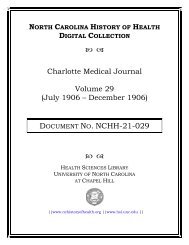
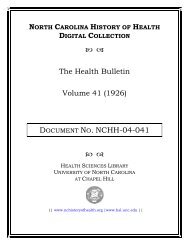
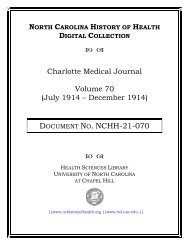
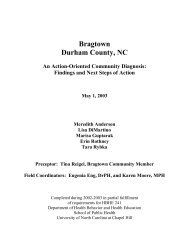
![Bulletin of the North Carolina Board of Health [serial] - University of ...](https://img.yumpu.com/48032016/1/153x260/bulletin-of-the-north-carolina-board-of-health-serial-university-of-.jpg?quality=85)
![The Health bulletin [serial] - University of North Carolina at Chapel Hill](https://img.yumpu.com/47603625/1/169x260/the-health-bulletin-serial-university-of-north-carolina-at-chapel-hill.jpg?quality=85)
![The Health bulletin [serial] - University of North Carolina at Chapel Hill](https://img.yumpu.com/43204263/1/172x260/the-health-bulletin-serial-university-of-north-carolina-at-chapel-hill.jpg?quality=85)
![The Health bulletin [serial] - University of North Carolina at Chapel Hill](https://img.yumpu.com/41981074/1/163x260/the-health-bulletin-serial-university-of-north-carolina-at-chapel-hill.jpg?quality=85)
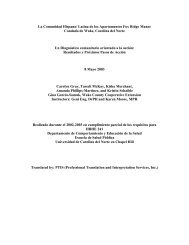
![The Health bulletin [serial] - University of North Carolina at Chapel Hill](https://img.yumpu.com/40912928/1/164x260/the-health-bulletin-serial-university-of-north-carolina-at-chapel-hill.jpg?quality=85)
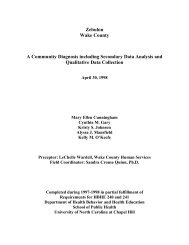
![The Health bulletin [serial] - University of North Carolina at Chapel Hill](https://img.yumpu.com/35643061/1/167x260/the-health-bulletin-serial-university-of-north-carolina-at-chapel-hill.jpg?quality=85)
![Biennial report of the North Carolina State Board of Health [serial]](https://img.yumpu.com/34024350/1/166x260/biennial-report-of-the-north-carolina-state-board-of-health-serial.jpg?quality=85)
